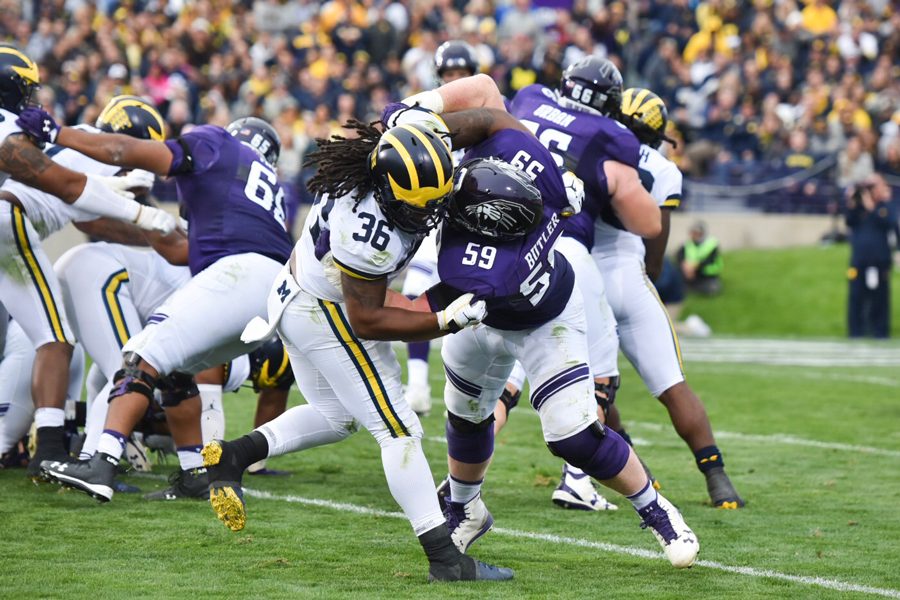Northwestern research links dyslexia gene to reduced susceptibility for concussions
Daily file photo by Brian Meng
A study by a Northwestern researcher found that athletes with a certain genotype may be less susceptible to concussions.
November 8, 2018
Researchers from several universities including Northwestern have found a possible connection between dyslexia and concussions, illuminating the intersection of genetics and sports medicine.
In an article published in the Journal of Neurotrauma, researchers outlined results from a study of football players at Pennsylvania State University, including the finding that a specific genotype leads to reduced susceptibility for concussions and head trauma. The genotype — KIAA0399 — is found in individuals with dyslexia.
While the paper acknowledges that the authors’ “current understanding of how genetics affect concussion outcomes is still in its infancy,” Penn State professor and co-author Sam Slobounov said the discovery makes up a new “part of the puzzle” when looking at how genetics influences athletes’ responses to concussive impacts.
These findings are noteworthy, Slobounov added, because dyslexia has never previously been linked to concussions, sub-concussive blows or brain injury. “We’re far away from complete understanding,” he said. “But (our findings are) very promising and very intriguing.”
Still, Slobounov said he is hesitant to draw definitive conclusions from the research without more evidence. Researchers are currently gathering data from middle and high school football players, he said, adding that he hopes further research will “make a more comprehensive story” about the potential connection between dyslexia and concussions.
This information will help coaches, athletes, medical community and scientists better understand the puzzling neurological disorder, he said. Northwestern Psychiatry Prof. Amy Herrold, a co-author of the study, said University researchers played a key role in the collaboration through analyzing data. NU, she said, was “really the intellectual driving force behind examining and integrating this data in order to make it really relevant to the field.”
Herrold said she hopes these findings can be replicated at other schools, noting their “novel” discovery of KIAA0399 and its connection with concussions could help athletes make more informed decisions.
“If we’re in a place where genetic testing can happen in preparation for participation in sports, those with a genotype conferring a risk for concussion would maybe think about playing a sport that didn’t involve high impact or being in a position within a team that involves high impact,” Herrold said.
Herrold said their findings have illuminated new lines of inquiry for further research. She added that their goal was to move the discussion forward.
“The ultimate goal is to really understand as a whole what confers genetic risk and also as a whole determining the mechanism behind it,” Herrold said. “Maybe we can harness this protective effect into developing treatment that would really help concussion recovery.”
Email: ericrynston-lobel2022@u.northwestern.edu
Twitter: @EricR_L


